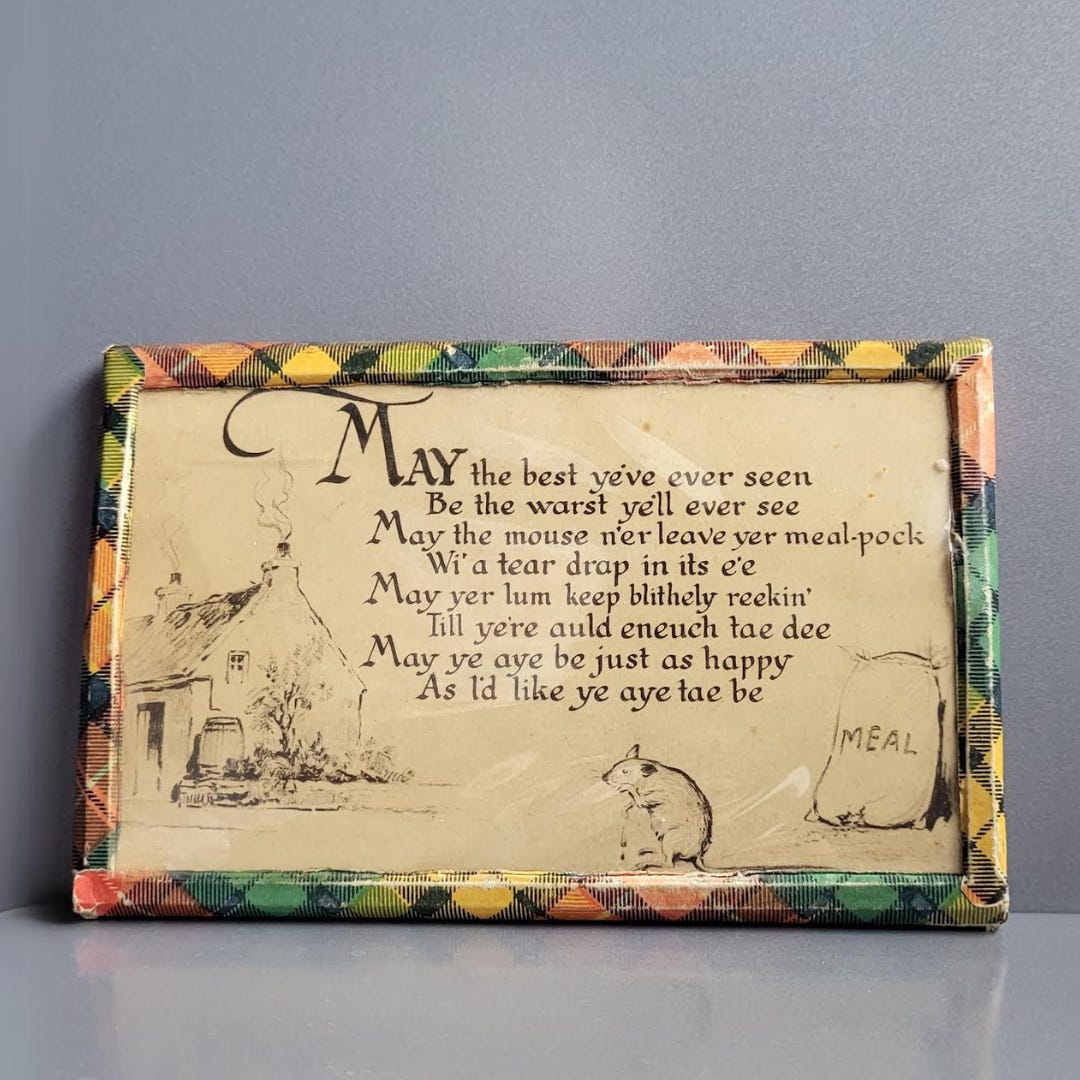JANET'S BLESSING
“She rarely spoke the words ‘I love you,’ but she would recite the blessing to show what was always in her heart.”
My mother’s mother, Janet McWhirter Gibson, was born in Dalmellington, Scotland, in 1889 and came to America as a newlywed in 1920. Grandma and Da settled in Los Angeles, where they had three children, including my mother. When my mom married, she and my dad moved next door, and my dad worked alongside Da as a mason (if you know the Smoke House Restaurant in Burbank, they built all the outside brickwork, chimneys and fireplaces). But in 1955, when my brother was four and I was one, my dad died suddenly, of a brain aneurysm. Grandma was devastated by her son-in-law’s death.
Twenty years earlier, she’d experienced another sudden loss, when her oldest son, Hugh—the uncle I’m named for—died of a burst appendix at the age of 14. Forever after, she could hardly bear to talk about him. When she did, she always called him “our Hugh.”
After my father’s death, my grandparents and my surviving uncle closed ranks to help my mom raise my brother and me. In the early years, my brother was in school and my mom was at work, so I spent every day with Grandma. She called me Wee Hughie Huck and did everything she could to fill the gap of my family’s loss. I knew the loss was tragic, I know the adults around me certainly struggled, but Grandma buffered me. She was my constant. She made the world feel safe.
There was always a fire in the enormous stone fireplace Da had built, and on cold days she’d drape my clothes over the fireplace screen so they’d be toasty when I woke up from my nap. She taught me to love music, not only showing me how to play the piano but also indulging my wish to hear endless replays of “Roly Poly” and “For He’s a Jolly Good Fellow” on the record player. She taught me to read by giving me the sports section, which in turn gave me a lifelong love for the Dodgers. She fed me hearty stews, which I loved—except for the liver she always tried to sneak in.
Grandma also taught me this blessing, which she had hanging in her kitchen. As I got older, I’d recite it with a Scottish brogue, to her delight. She rarely spoke the words “I love you,” but through her actions, she showed love every day. She would recite the blessing to show what she wanted for her family and what was always in her heart.
When my mom died, in 1985, Grandma, who had been living with her, sold the house and moved to my uncle’s. As she left for the last time, she took the framed blessing from the wall and handed it to me. A few years later, when I bought my first home, it was the first thing to go up on the wall. And when I started dating my wife, Laurie, and showed it to her and told her its story, that’s the night she fell in love with me, she says. At our wedding, we offered our translation of the blessing as a toast to our guests and to the loved ones no longer with us, including my beloved grandmother. And now I offer it to you:
May the best you’ve ever seen
Be the worst you’ll ever see
May the mouse never leave your sack of oats
With a teardrop in its eye
May your chimney keep blithely reeking
Till you’re old enough to die
May you all be just as happy
As I’d like you all to be
—Hugh Crotser
Hugh Crotser is retired from a career as a buyer in the aerospace industry. He and his wife live in Santa Clarita, California, with their three-legged cat and newly adopted senior dog and are planning a trip to Dalmellington, Scotland, to visit his ancestral home.
For a different reading experience, The Keepthings’ stories can also be read in their entirety on Instagram @TheKeepthings.
Have a story to share? Please see the complete submission guidelines, including photo guidelines, at TheKeepthings.com.






You got me with ‘our Hugh’. Thank you for sharing this story and the blessing.
Beautiful remembrance! Enjoy the trip to your ancestral homeland!